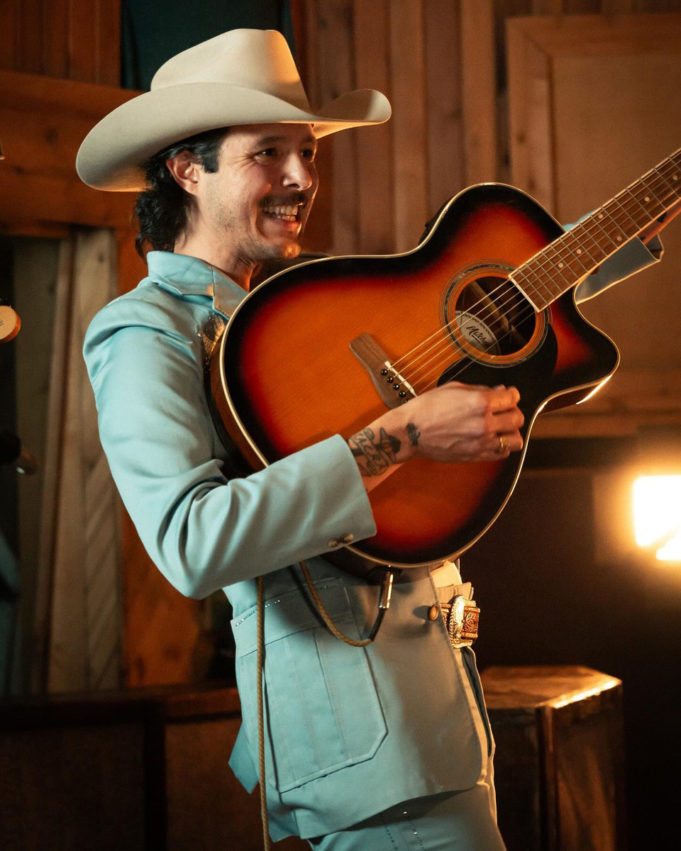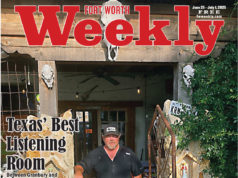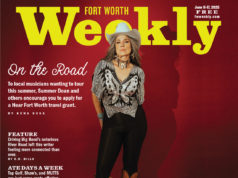Sitting down to write these things, I always wonder what it was like for a given artist when they had a recording to release and had to stop and endure the process of assembling the Professional Promotional Package, a spreadsheet of bullshit that includes but is not limited to: photoshoots, photo editing, social media updates, social media ads, the hurry-up-and-wait experience of booking promotional shows, endless emailing, endless Instagramming, and 200 other details that have very little to do with writing a song but are unfortunately concomitant to the business of writing and performing your own music. I think that whole process is terrible, for the way it robs you of your time, burns up your wallet, and molders your expectations regarding the real value of your moments and money. There are probably artists who love it, but for most, I bet all that shit is as ball-and-chain-y as a regular-ass job.
I talked to country singer-songwriter Cory Cross about this last week over the phone. He has an album out in late spring called There’s More, and he’s in the thick of that promotional chore process. The first single, “100 Miles,” comes out on Friday, along with a video of him and his band, the Burden, performing the song live at Cedar Creek Studios in Austin. After that, he’ll drop a new single every month through May, after which the entire album will be available for streaming. There’s More is 14 tracks, and that five-month promo plan makes for a lot of little things to do, especially for a guy who also pays his bills playing live shows. That’s how we ended up talking about golf.
We spoke on a Thursday afternoon. He said it was a rare day off, that he was thinking about hitting up a Par 3 course in Benbrook that evening.
“I was thinking I’ll play nine holes,” he said. “I’m off on Mondays, and I normally play [golf] Monday mornings. My senior year in high school, I had some buddies on the team and wanted an excuse to hang out with them and play, but, really, since I quit drinking a couple years ago, I was like, What am I going to do with all this time and energy? So, I started playing golf again.”
I asked him what it was about golf that filled that void. “I dunno. I think I just have the temperament for [golf]. I don’t get frustrated with it. I just play. I’m not good, but I like getting outside.”
That vibe, of just playing without allowing the stress to seep in, seems to be at the root of his essential Cory Cross-ness — he said that the songs on There’s More are his reflections on the chaos of his 20s and 30s, his lyrics living in the moment like the way you relive something in a dream, a kind of there-not-there perspective from an artist with a 10-year career to look back on. In addition to a long run of hard living, there was the added pressure he put on himself trying to make it as a singer-songwriter. Since he’s been sober, writing music and running his career have been easier precisely because he has learned to go with the flow and allow himself space to breathe, at least enough to write songs about it.
“The subject matter, at least these days, a lot of it, has to do with the way I used to live,” he said. “My fiancee and I try to curate a lot of peace and spirituality. We have faith and routine. I spent a lot of time in a chaotic space in my daily life, and I’m still reflecting on that time. The way I approach my career is a little similar.”
He tried to articulate a phrase he’d heard that encapsulated what he meant. I identified this as the chorus to “Hold on Loosely” by .38 Special.
“Yeah, that philosophy,” he said. “That’s how I approach golf, and that’s how I approach my music career now. I met a lot of [other songwriters], especially in the beginning. There was this crazy pressure and comparison about where you’re at with your shows and your numbers, and I try not to do that [anymore]. I slip into it sometimes. Of course, I want a million people listening to my songs, and I have bills to pay, but we focus on victories, just playing a good show, connecting with an audience, even if it isn’t that big. Writing a good song.”
Given his previous releases, he has put in a lot of work in the service of that last item, and I’d say he has indeed seen several victories — if you’re into numbers, his top Spotify plays come from a track called “Done Bein Good (For Good),” currently sitting near 89,000 plays. He tours a lot, and in March, he’ll spend a couple weeks hitting the road across the Southwest to California and back.
His parents, both pastors at a church in Fort Worth, ushered him into the world of music, and he started playing drums at age 8. In his 20s, he lived in Austin during the mid-2000s garage-rock revival, playing drums in various garage- and psyche-rock bands. Before that, here in Fort Worth, he joined a funk-rock outfit called Get Well, crewed by a couple of his co-workers at Mellow Mushroom.
“Fort Worth is where I got my start,” he said. “My first shows were at the Aardvark, the Cellar, the Grotto … the original Fred’s and Lola’s, Magnolia Motor Lounge. … I remember seeing Joshua Ray [Walker] and Vincent [Neil Emerson] play those shows. It was a really fun time. Before that, I was, like, 19, sitting around Panther City Coffee on Berry Street. I’d roll shitty cigarettes. There was a guitar around. People would just play. I have been writing country songs since I was 15, so [back then] it was doing Townes Van Zandt but with an emo influence. Wearing suspenders and fedoras. But I was obsessed with country since I was 12 or 13, rolling around with my uncle. The first songs I learned were by Willie, Jerry Jeff, and Townes Van Zandt.”
What he’s learned over all that time is that songs happen when you work at them. “I used to think I needed a lightning bolt of inspiration for a song, but now I’ll just sit down and start to write something specific, a certain subject matter. Most of the time I have an idea of the rhythm and the vibe. There’s a little bit of emotional sifting, like, Yeah, that was actually a bummer. But it’s still a song that’s fun to hear.
“The music we’re putting out now is mostly …,” he paused. “We don’t want to bum anyone out, but even the songs that are kind of heavy and have lines in them about sad things that actually happened, they’re there with songs you can still two-step to. One of the things I love about country is that in a song about dying, there’s a punch line.”
There’s More came together in October, recorded at Weatherford Junior College under the auspices of legendary engineer Tim Kimsey (The Polyphonic Spree, Pantera, Vanilla Ice). Cross said the album was a project designed to highlight both the audio engineering skills of the Burden’s drummer, Austin Choate, and also the cohesive vision that happens when a band plays together for a while.
“We really wanted to showcase the band,” Cross said. “I’ve done EPs with hired guns, which is fine, but we wanted to showcase what Cory Cross & The Burden are right now. There are two or three songs that I wrote four or five years ago, but most were written over the past couple years with these guys in mind.”
Along with Cross and Choate, the Burden’s lineup includes Kyle Farley on bass, Matthew Walton on electric and steel guitar, and David Forsythe and William Wright contributing additional axe-work. Playing with these guys has given his music a lot of purpose, he said, and it’s opened up new ways of being in a band.
“We’re changing our approach,” he said. “We’re doing this West Coast tour, maybe one up to New York at the end of the summer, the Honky Tonk in Queens. Less of the grind-y weekend-warrior stuff.”
As long as he’s able to hit the links to clear his head now and again, getting the songs on There’s More into people’s ears will feel like a breeze.












